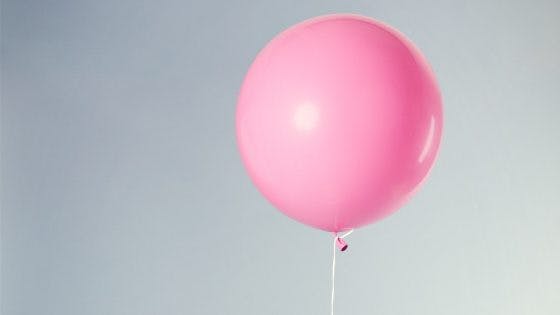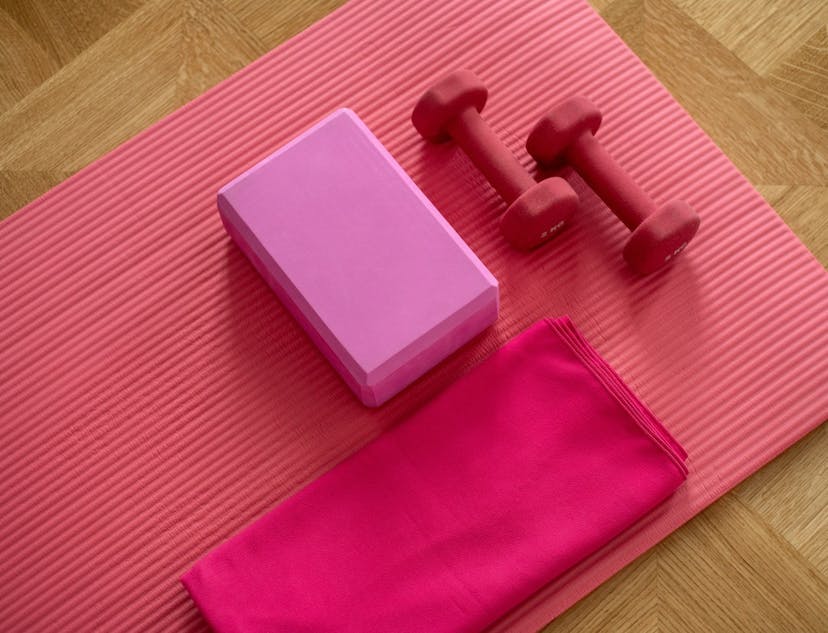How To Beat Menopause Bloating
7 minutes read
Bloating in the menopause isn’t the most glamorous of topics, but it’s a common issue that many people in this life stage are dealing with. So if you notice your tummy feels tight and uncomfortable more often than not, read on to find out more about menopause and bloating and how to combat it.
Menopause & Bloating
When it comes to bloating in the menopause, how do we know it’s bloating we’re experiencing and not just weight gain?
“Bloating is a condition where your belly feels full and tight, often due to gas,” said intimate women’s health expert Dr Shirin Lakhani. “Your stomach may get larger throughout the day, depending on what you have been eating. Bloating usually occurs when air is trapped in the colon or small bowel. In some cases, bloating can cause a person’s stomach to swell.”
Dr Lakhani explains why bloating is particularly prevalent in the menopause. “Bloating during perimenopause may occur more frequently than during menopause or post-menopause, as your hormones are changing rapidly, which can lead to higher levels of oestrogen. Oestrogen causes your body to retain water, which can lead to bloating,” she notes.
“If you see a sudden change in your physique and you cannot attribute it to excess eating or lack of exercise, then it could mean you’re struggling with hormonal issues,” she adds.
Menopause Bloating Relief
If you’re experiencing menopause belly bloat, thankfully it’s not a life sentence! There are ways to prevent and reduce it, as menopause expert and coach Meera Bhogal outlines.
“Bloating in the menopause is something that’s very manageable,” she says. “Firstly, keep a track of what you are eating and drinking. Certain foods can cause more bloating because they can be hard for our bodies to digest. Most common are wheat and dairy, but also legumes (beans, soybeans, peas, chickpeas etc.), and even oats which are not soaked or cooked.”
Ensuring our gut microbiome is happy and healthy is also key to minimising bloating during menopause. “If our gut health is not at its best, again we can struggle to digest food and experience bloating,” Bhogal explains. “So including pre and probiotics daily into your diet is important; good sources are bitter foods, like onions, garlic, raw asparagus for prebiotics and sauerkraut, kimchi, tempeh, and kefir for probiotics. Also make sure you include anti-inflammatory foods like turmeric, ginger, and cinnamon in your diet.”
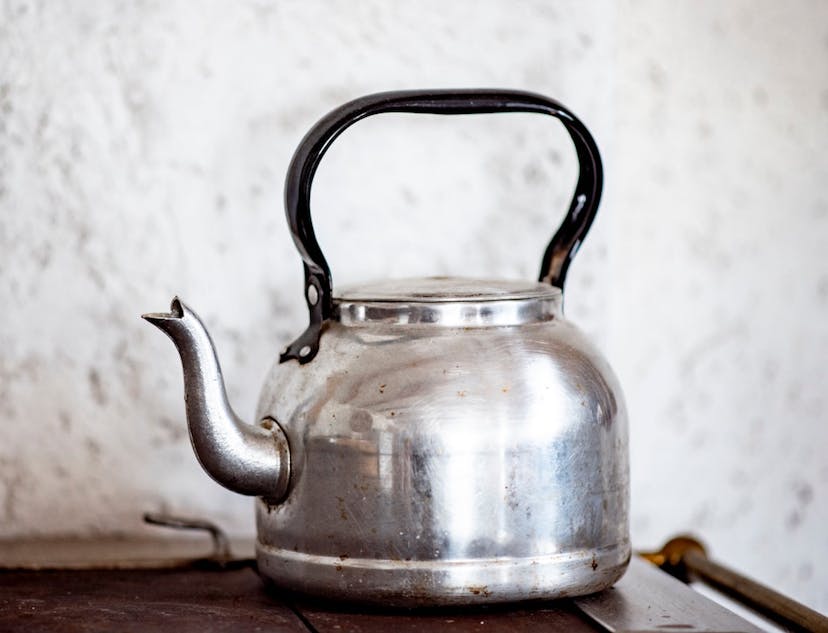
And as if we needed any more reminders, reducing stress levels is also a good idea. “Stress can also cause bloating so eating mindfully and having some time to relax is important,” Bhogal continues. “Try to reduce caffeine and alcohol (which can exacerbate stress) and increase water and consider herbal infusions instead. I drink fennel and cinnamon tea which helps.” Bhopal’s own Happy Tummy Tea, £6.99 has been specifically created for menopausal bloating in mind.
Dr Lakhani advises that bloating will likely diminish after the menopause, but if you have prolonged bloating, you should see your GP as it can be a sign of other health conditions.
“There are some over-the-counter medications that can help with bloating too, such as peppermint capsules and simethicone pills and liquid are anti-gas medications that can help with bloating,” she adds.
If you’re looking for short-term bloating relief, Pilates instructor Helen O’Leary, director of Complete Pilates suggests the following exercise.
“Pelvic tilts are great at any time, even if you have bloating,” she says. “If you are already bloated they will help you connect with your lower and deeper abdominals in a gentle way, allow blood flow to the area and encouraging movement around your lower back. This can help to alleviate some of the discomfort you may have when bloated. You can also modify this exercise so you are not fully laid straight but can prop yourself up a little to take off some of the stretch.”
Pelvic Tilts
If you’re new to this kind of exercise, Helen has put together a quick guide below …
- Lie on your back with bent knees and the soles of your feet on the floor. In this position, the natural curve of your lumbar spine will lift the lower back slightly off the floor.
- Exhale and gently rock your hips toward your head. As you do this, you’ll feel your lower back pressing gently into the floor
- Stay here for a few breaths
- Inhale and return to your natural position.
- Repeat five-ten times.
- If you are struggling to feel your deeper abs and pelvic floor, put your pelvis on some pillows so gravity can help you.
Menopause Water Retention
Bloating is often confused with water retention, another common symptom of the menopause – and the two often get confused. But as Dr Lakhani explains, water retention is somewhat different.
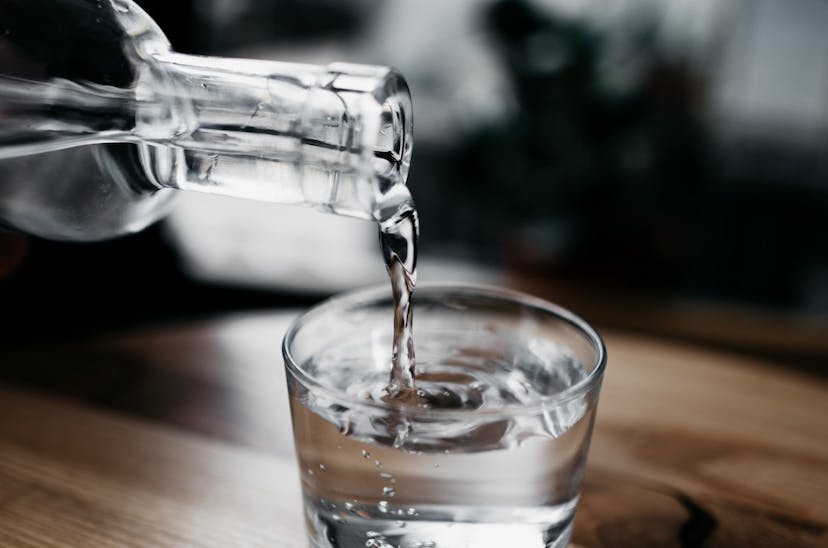
“Water retention happens when excess fluid builds up in your body,” she explains. “It happens in the circulatory system, tissues and cavities and can cause swelling in hands, feet, ankles and legs.”
As with bloating, the causes of water retention can also be hormone related. “Water retention can occur as a result of changes in the levels of certain hormones, such as progesterone. So it’s likely to occur during the menopause,” Dr Lakhani adds. “However, it’s also different from bloating. Bloating is located in the stomach and is the result of trapped air but water retention can appear in a wider range of places throughout the body.”
Reduce Water Retention During Menopause
If you’re noticing increased signs of water retention in menopause, thankfully there are ways to tackle it. “Most menopausal women will experience some water retention in the gut and other areas of the body. Staying hydrated helps to keep the digestive tract moving smoothly,” explains Kathryn Danzey, Founder of supplement brand Rejuvenated. “Carbonated drinks can lead to excess gas in the stomach, as can chewing gum. Eating too much salt to your food can cause water retention and swelling too, so instead try adding herbs and spices to season your food.” The Female Hormone Support, £24.95 by Rejuvenated promotes healthy hormone levels and helps to calm menopause symptoms including bloating.
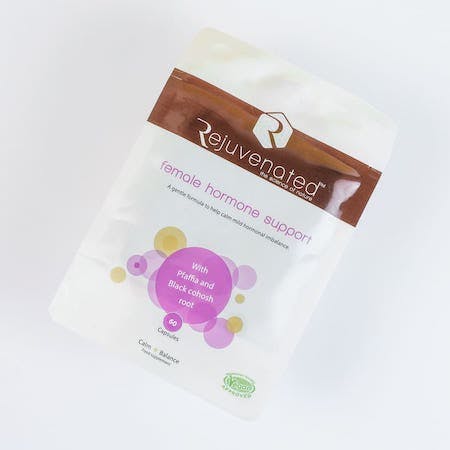
Dr Lakhani agrees that reducing salt is a good way to prevent water retention.
“If you often eat foods that are high in salt, such as processed food, your body may retain water,” she says. “Although more research is needed, it is thought increasing magnesium in your diet may reduce water retention. Good sources include nuts, whole grains and leafy green vegetables but it is also available as a supplement.”
Potassium is another food group to help combat it. “Increasing potassium in your diet may help decrease water retention as it can prevent fluid buildup and swelling,” she says. “Low potassium levels can also cause problems in bowel function. Foods to eat include bananas, avocados and tomatoes. I also recommend reducing foods such as white bread and pasta as these can cause high insulin spikes, which may cause sodium retention and lead to more fluid volume. It’s a good idea to eat whole grains instead.”
And some final few tips… “Other ways to reduce water retention include walking around and moving or lifting up your feet. Also drinking more water will also help as hydration is important. If you are worried though, you should always consult your GP.”
FAQs
What does menopause bloating feel like?
Bloating in the menopause happens your belly feels full and tight, and your stomach looks swollen. It can often be uncomfortable, especially when your clothes don’t fit.
Why is my stomach so big during menopause?
An enlarged stomach can be due to menopausal belly bloat, which happens as a result of hormonal fluctuations that can happen around this time, which upsets the gut microbiome and leads to gas being trapped in the colon.
How long does menopause bloating last?
Bloating during menopause will probably diminish once you reach the end of menopause, but there are ways to manage it in the meantime, with diet and exercise and taking the right supplements.
Sign up for our newsletter
We will keep you in the loop for special offers, exclusive gifts and product news.
Products You Might Like
BEST-SELLER

